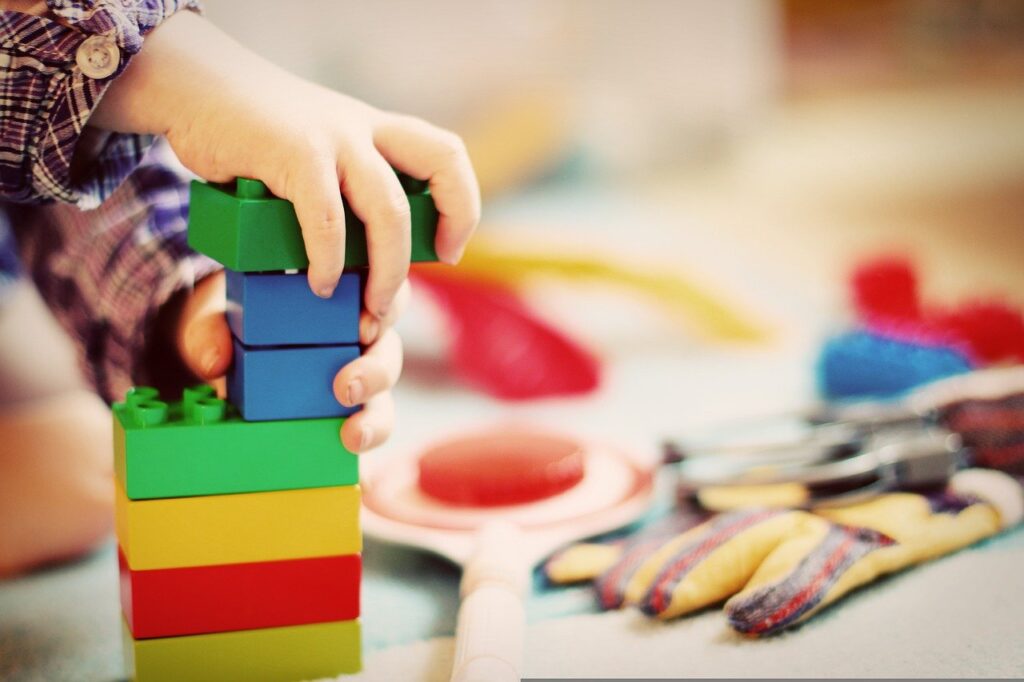5 Ways Toys Can Impact Your Child’s Growth and Development
Most families start receiving toys from the moment they announce a little bundle on the way – and by the time your child hits the toddler years, your home is most likely drowning in them! The good news is, far from just being a source of entertainment, the toys your children play with are vital for their growth and development.
Parents are a child’s first teachers. Introducing your children to high-quality toys and play experiences will impact their ability to move, communicate, interact with others and develop independence. Nurturing your child’s imagination through play teaches them about the world they live in, exposes them to different cultures and helps them develop skills needed to prepare them for school.
Keen to read more about why toys are so important? Here are five ways they impact your child’s development.

Toys help develop fine and gross motor skills
Fine and gross motor skills are the building blocks of your child’s movement, coordination and balance. Fine motor skills describe small movements of the hands used to do things like writing and dressing, while gross motor skills are large-muscle movements of the torso, arms and legs that control a child’s ability to crawl, walk, run and climb. Toys play a vital role in developing these skills and building your child’s independence.
Fine motor skills teach your child physical dexterity. You can encourage this by:
- Giving them items to manipulate, like zippers, buttons and fasteners.
- Making or buying posting toys (like cutting holes into a shoebox so that popsicle sticks can be pushed through).
- Playdough and kinetic sand play that encourages your child to use and strengthen their hands.
Promote gross motor skills by:
- Providing ride-on toys like rocking horses, trikes, bikes and foot-pedal cars.
- Pushing dolls in a toy pram.
- Letting your child play on climbing equipment, like Pikler triangles, from a young age (even if this means just pulling themselves up on it).
- Teaching them to throw and kick balls.
- Taking playground trips – great for fresh air and risky play in a controlled environment.
Toys nurture a child’s imagination and creativity
Open-ended toys, which can be used in any way a child chooses, are brilliant for nurturing your little one’s imagination. The toy itself doesn’t provide feedback, such as flashing lights or sounds, which means children soon learn a single toy can be used in many different ways. Open-ended play is also a great way to encourage children to spend time outdoors and appreciate nature.
Arts and crafts toys like paints, chalk, playdough and crayons, paired with a blank canvas, such as paper or a clean surface, allow children to develop their creativity. Rather than using colouring books and asking them to colour in the lines, you can develop a child’s creativity by letting them loose with different materials and encouraging them to express themselves however they like.
Toys foster your child’s ability to communicate and interact with others
Playing with toys is an easy and important way to start teaching your child new words. By providing toddlers with a wide variety of play experiences, you can expand their vocabulary, while also showing them how to use their new words in the correct context. Play is a brilliant way to teach the functional language that your child can use to communicate their needs with you – it’s a great idea to work on this before more abstract ideas, like colours or the alphabet.
Role-play using dress-up costumes is a great way to teach your child about different experiences, like visiting the doctor or going to preschool for the first time. Learning to share toys with other children and play cooperatively is a huge part of developing interpersonal skills.
Toys teach your child early literacy and numeracy skills
Toys are a great way to introduce your child to the alphabet and numbers, whether through letter or number puzzles, magnets, foam toys, or by creating your own games using open-ended toys. This is vital for school readiness and a great way to get your child excited about learning in a fun, stress-free environment.
Toys encourage your child’s independence
Toys, especially open-ended toys, are great at teaching children problem-solving skills that will help them gain a greater understanding of the world around them. By learning to troubleshoot a puzzle that doesn’t fit together or a train track that doesn’t quite join, your child will soon discover they are able to fix problems on their own without involving an adult.
Getting immersed in a world of make-believe with small-world play, becoming chief engineer of a Lego city, or focusing deeply on an arts and crafts project shows children they have the ability to entertain themselves.
Famed Italian educator Maria Montessori once said, “Play is the work of the child”. Providing your child with play-based learning opportunities teaches them many fundamentals that will prepare them for life – experiences, abilities and social and communication skills they will use when they start school and as they continue to grow and mature.
